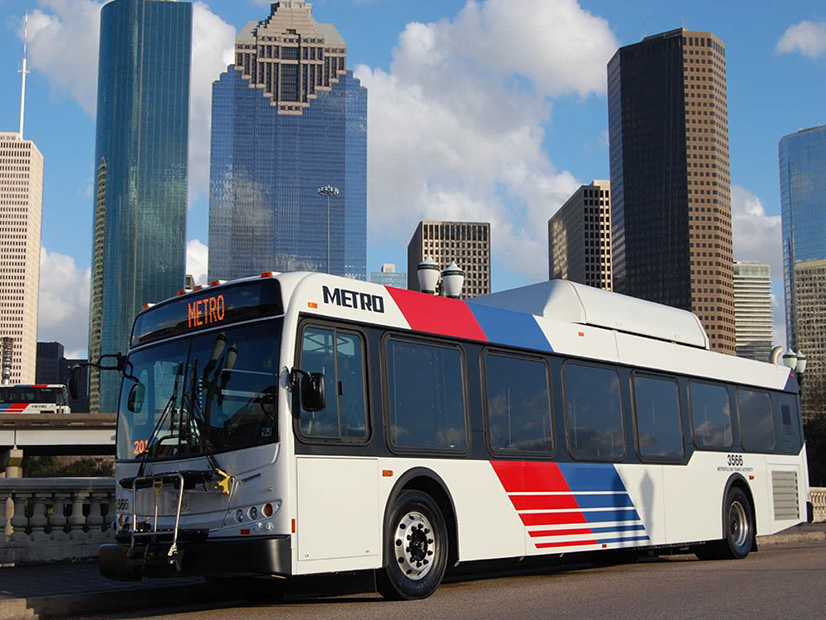
The Houston METRO Board of Directors on Thursday voted to replace the agency’s fleet of 1,300 buses with electric buses by 2030 as part of its first Sustainability Vision Statement.
The transit authority had already voted to purchase 20 full-size battery electric buses and 10 battery-powered para transit vans and had applied for federal grants. The vote also commits the board to explore the use of fuel-cell electric buses, which convert hydrogen to electricity, replacing batteries.
With the vote, METRO joins other municipal and state systems that have committed to replacing their diesel and natural gas fleets with electric buses by 2040. They include New Jersey Transit, which has committed to replacing its 2,200 buses, the California Transit Association (12,000 buses) and New York MTA (5,800 buses).
The move toward electric buses includes a commitment to improve equity and accessibility with initial electric bus routes planned for portions of the city most impacted by carbon dioxide emissions.
The Houston fleet is the largest in Texas, according to the Environmental Defense Fund, which notes that about half of the metro area’s emissions can be attributed to the transportation sector.
EDF says that metropolitan transit systems can save money by moving away from diesel to electric buses, noting that the total cost of owning and operating an electric bus is 12% lower over a typical 12-year lifetime.
“This commitment is a historic win for Houston’s health and climate. Houstonians deserve a modern, clean transit fleet that cuts pollution and saves money, and with an all-electric fleet Houston METRO can deliver,” Colin Leyden, EDF director of state regulatory and legislative affairs, said in a statement. ” [Houston] Mayor [Sylvester] Turner and the METRO board are to be commended for driving this progress and delivering meaningful climate action for the Houston region.”


